Once you’ve made the decision to write the CMA exam, there is an incredible amount of studying and dedication that goes into preparing for it. The next big decision is whether you should attempt CMA self-study, take classes, or find a program with more support.
It takes an incredible amount of studying and dedication to prepare for the CMA exam, and there are plenty of options when it comes to exam prep.
The reality is, not everyone learns and digests information the same way. Some people learn from a more hands-on approach, while others can self-teach with ease. It stands to reason that choosing a method of study for your CMA exam is an individual decision that may very well impact your success.
Luckily there are several ways to prepare for the exam, and the most common are self-study, instructor-led classes, and guided online review programs. Regardless of your individual learning needs, there are unique advantages to each method.
Let’s break it down, so you can choose a method with the right level of support for your CMA exam prep.
Originally published in 2015, this article was updated and republished on October 4, 2024.
Self-Study for the CMA Exam
Self-studying for the CMA exam is a popular way to go. With a combination of books, CMA practice tests, and online resources, some students choose to create their own program of study.
There are a lot of pros to doing it this way, but of course, there are also some cons.
Pros for CMA Exam Self Study
- Self-paced: The ability to go at your own pace, or study for the exam while working or fulfilling other obligations, is a big perk.
- Flexible: With self-studies, you have flexibility in terms of what you study on a given day or week.
- Heightened retention: there is a potential for greater knowledge gains and retention through self-paced learning.
- Easy access: CMA online classes you can take at your own pace are especially convenient if you are often on the road, travel for work or have a daily commute.
A lot of people interpret “self-study” and “self-paced studying” to mean they can go faster, but the opposite is also true. If you are working full time, are a busy parent, or have other commitments, self-studying for the CMA exam can give you a longer timeline in which to achieve your goals.
Of course, plenty of benefits doesn’t mean there aren’t some drawbacks.
Cons for CMA Exam Self-Study
- Autonomy: Independence in CMA exam prep is a double-edged sword. If you don’t buy the right CMA exam review, you may lack the right guidance to cover all of the subject matter and materials.
- Accountability: Staying on task when self-studying is entirely up to you. You have to be rigorous and disciplined to prepare for the CMA exam this way.
- Software and technology: Depending on how tech-savvy you are, remember that self-studying is usually a software-based CMA program that is going to require you to learn the system. This may or may not be a comfort zone for you. Plus, if things go wrong or have glitches, your studies may be disrupted.
- No support when you have questions: You will spend a lot of time researching answers, with no access to a coach or instructor when you don’t understand an exam concept.
- Longer study time: Self-studying typically takes longer than other options because you’ll be navigating exam prep on your own. Guided review courses keep you moving at the right pace and help you along when you get stuck.
- Guessing when you’re ready: Self-studying means you have to guess when you’re ready to write the exam. Other exam prep options provide tools and guidance to help you confidently decide on your exam date.
- No community: With all of the flexibility and independence, you may feel isolated, cut off from peers, and on your own when you have questions.
Of course, some self-study programs have CMA coaching, tutoring, cohorts, and other features to provide touchpoints and personalized guidance, so this last con may be avoidable. However, these options involve additional costs and if you initially purchased a self-guided plan.
Creating an Effective CMA Self-Study Plan
Here are some important tips for creating a personalized CMA self-study plan.
- Set clear goals and timelines: You can determine how many topics you have left to cover and then divide this by the number of weeks you have. Divide this again by the number of study days each week. This gives you a clear idea of how many topics you need to cover for each study session. You can use this to create a schedule leading up to your exam.
- Prepare suitable study materials: The resources you use can make or break the outcome. Make sure you learn from textbooks, courses, and video lectures from trusted sources.
- Practice applying your knowledge: Practical assignments and mock tests can help mimic the actual exam. Through these hands-on exercises, you can spot areas to focus on and get used to the layout of the real CMA exam. That way, you won’t encounter any undesirable surprises on your exam day!
- Prioritize time management: Have a study schedule. Make sure you have enough time to learn new materials and revise what you’ve previously studied. An excellent way to save time is to focus more on areas you’re weak at, which you can spot by trying practice questions.
- Take regular breaks: Include regular breaks in your study schedule to avoid burnout. You can go for a walk, listen to your favorite playlist, do simple stretches, or enjoy some snacks during your break.
- Monitor your progress: Continuously monitor your progress and adjust your plan as needed. If you’re falling behind, you might need to realign your priorities and allocate more time to studying.
- Leverage the power of online communities: Use online communities and forums to gain support and share experiences with other CMA candidates. You can join the CMA community to exchange advice, tips, and support with other people on the same journey as you.
Having a game plan is crucial to finishing your study materials on time and being well-prepared for exam day.
Essential CMA Self-Study Materials
As mentioned earlier, it’s crucial to have access to suitable materials to successfully self-study for your exam. The right resources can drastically increase your odds of passing your CMA exam on your first try!
Here are some helpful resources to help you prepare effectively for the exam.
- CMA Textbook Combo: The CMA Exam Academy textbook combo is a surefire way to cover all the information you need to succeed in your Part 1 and Part 2 exams. Each textbook offers clear explanations, practice questions, and detailed solutions to help you master essential concepts. Everything is written and presented in a straightforward and engaging manner to help you learn more in less time.
- CMA Online Test Bank: The saying “practice makes perfect” rings very true when it comes to the CMA exam. Practicing with CMA test questions helps you spot areas you’re weak at and familiarize yourself with the style of questioning and layout of the exam. A timer is also included so you can work on your time management. With lots of practice, you’ll feel even more confident on your exam day!
- CMA Accelerator Course: This online course walks you through everything you need to know for your CMA exam through training videos, expert-driven resources, and actionable assignments. You’ll work through a done-for-you 16-week study plan and gain access to calls with experienced CMA coaches to help you prepare the best you can and pass on your first attempt!
- Additional Resources: Some other useful resources include CMA Formula Guide and CMA Audio Lectures.
If you want to self-study but need help figuring out where to start, these materials can help you jump right on track and set yourself up for success!
Live Class CMA Exam Review
While self-study is great for some, others prefer to be led by a teacher and held accountable for their studies. In this case, a live class or an online instructor-led option is a better fit.
Group classes may include in-person classes, live group classes online with instructors, and fast-paced crash courses.
Classroom-based review programs keep you accountable by setting a specific study schedule. This is particularly beneficial for those who lack the discipline to follow a self-study program.
Another benefit of an instructor-led review is that you have access to an expert who can help you with questions that may be tripping you up.
There are fewer options when it comes to instructor-led review, which is something you might want to take into consideration.
Pros for Live CMA Classes
- Structure: Live classes give you maximum accountability and structure: you have to show up at a certain time, get face-to-face (or screen-to-screen) with an instructor and participate.
- Access to an instructor: Doing an in-person or virtual live class enables you to ask questions and get immediate answers or guidance.
- Social support: Live CMA classes may have a social component, which means you have classmates who you are going through this with, and who can be a resource for you.
- Pre-scheduled classes: Live classes are offered with a variety of scheduling and instructor options, so you can stick to a predictable, consistent study schedule.
Cons for Live CMA Classes
- Missed classes: Because they are structured, if you miss a live class, you may miss either the chance to ask a question or learn important course material. While you can watch the recording, you miss out on the key benefits of a live class when you miss the session.
- Inflexible pace: You don’t have the ability to self-pace, which means that if you’re struggling with a specific concept, you can’t “pause” and work on it longer.
- Set order of topics: In live classes, not only pacing but also sequencing is set for you. This means that you’ll learn concepts and topics in a specific order, and not really get to switch it up based on your strengths and weaknesses.
- Not enough time to master the content: The CMA exam requires not just knowledge, but thorough understanding and correct application of the concepts. Most classes don’t provide enough time to sufficiently absorb the study material and practice using it.
- Inconvenient: A fixed schedule of classes, particularly if they are in-person and require travel time, is inconvenient for CMA candidates already juggling work, studying, and personal commitments.
It’s easy to see that whether you choose self-study or live, instructor-led classes, you’ll still need to make decisions for how to fit it into your life.
Weekly Guided Online CMA Review
At CMA Exam Academy, we realized that there was a component missing out of both self-study and instructor-led course options. So, we added a missing puzzle piece, which turned into a weekly guided online CMA review program.
A guided review offers the best of both worlds when it comes to studying for the CMA exam: complete self-study resources combined with the accountability of a weekly schedule, weekly assignments, preset study milestones and unparalleled coaching support from US-based CMAs.
The candidate pass rate in CMA Exam Academy is 90% on average.
Most people need some structure to stay on track with their studying. They need accountability, but also flexibility. This CMA study resource is that perfect blend, and meets the needs of thousands of CMA candidates every year.
Pros for Weekly Guided Online CMA Review
- Expert CMA support: 24-hour access to a qualified CMA exam expert to answer questions.
- Personalized program: You get personalized recommendations and feedback on your study habits and exam progress.
- Individual Coaching: Someone has your back, ensuring you don’t lose your way, focus too long on certain topics, fall behind, or miss a step.
- Flexible schedule: While you’re in charge of when you study, a weekly schedule and weekly check-ins with your coach will keep you progressing at the right pace.
- Knowing when you’re test-ready: You’ll know when you’re test-ready, because someone has guided you through the process and can give you that timely insight.
- Community: Connect with other candidates in our private CMA community to share study tips, network, and support each other while you study.
- Faster progress: A guided review program can get you exam-ready in half the time compared to self-study. With everything mapped out and quick support when you have questions, you can just focus on studying.
Cons for Weekly Guided Online CMA Review
- Commitment: This program is designed for candidates who are committed to the goal of passing on their first attempt. You’ll have to put in the hours each week to stay on track.
- Time limit: This program introduces an external timeline, which may be unnecessary if you have extraordinary levels of self-discipline. The guided review follows an ideal timeline of 16 weeks per exam part (although you’ll have access to study materials and support for two years).
- Someone holds you accountable: You may feel pressured or stressed out by the idea that someone is watching your progress or holding you accountable, even while this same feature keeps you motivated.
The weekly guided CMA review program from CMA Exam Academy comes with weekly support calls from a CMA coach, unlimited email support, and weekly assignments with accountability. Along with the video and audio lectures, textbooks, and an advanced test bank of practice questions, it’s a secret weapon for people who pass the CMA exam. Learn more about it here.
Which is Right for You?
There are so many study options out there to help you prepare for the CMA exam, so all you have to do is decide what you need out of a program. If you prefer accountability and access to a teacher, make sure you choose a course that includes enough support.
If you want to teach yourself the material on your own timeline, then self-study might be enough. Just make sure you use up-to-date study materials and establish a solid study routine.
There is no right or wrong way to prepare for the CMA exam, so be sure to choose an option that works best for you. If you have any questions about specific programs, feel free to drop a comment and I’ll reply to you.
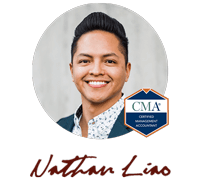
Hi, I’m Nathan Liao (aka the CMA Coach)! For the last 10 years, over 82,000 accounting and finance pros came knocking at my door seeking guidance and help. If you’re also aiming to conquer the CMA exam on your very first try—without wasting away time or money—you’ve found your ultimate guide. Dive in deeper to discover more about me and the dedicated team that powers CMA Exam Academy. Click here and let’s embark on this journey together!


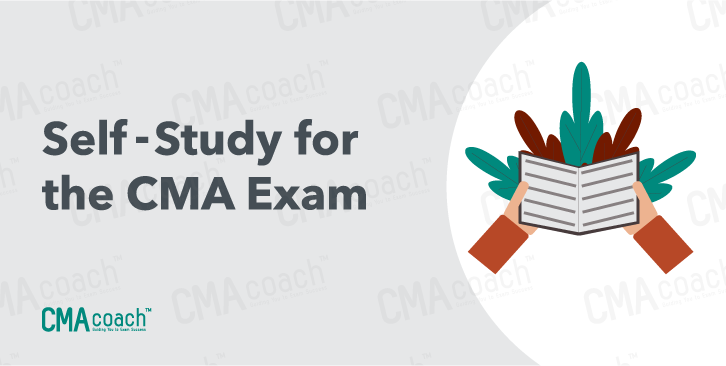
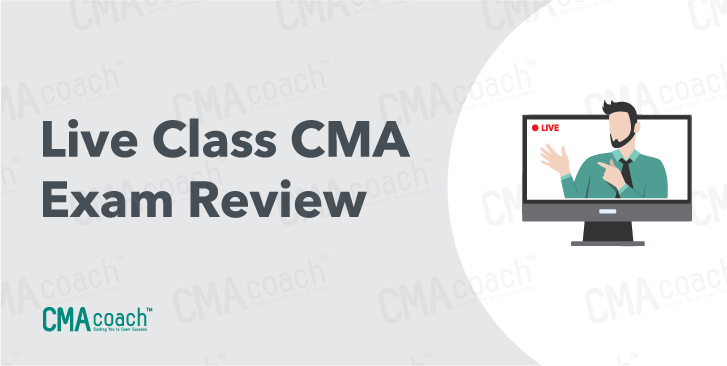
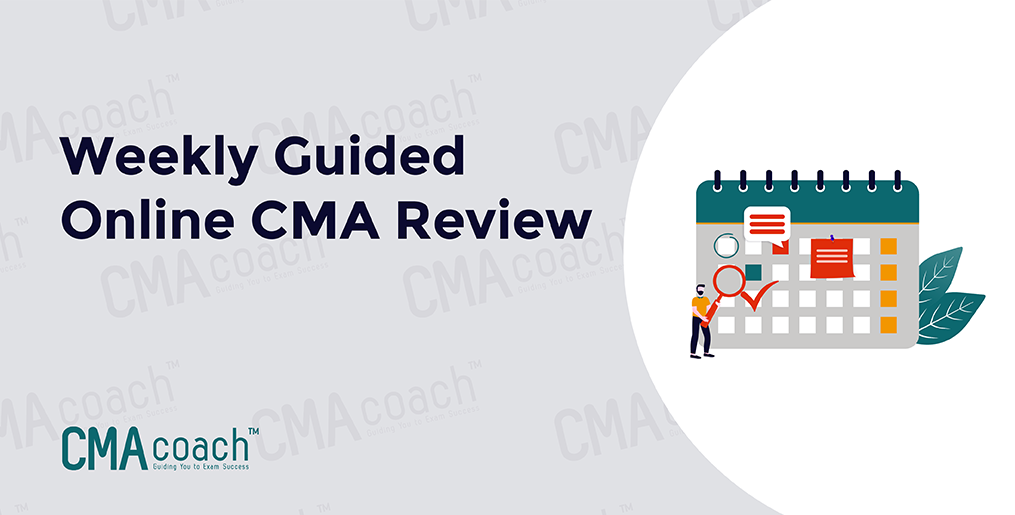
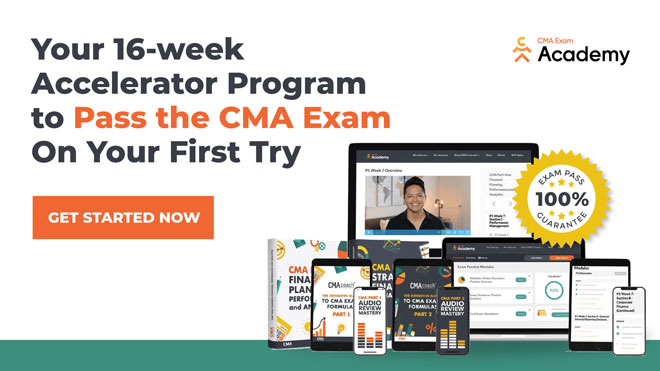
4 Comments on “CMA Exam Self-Study vs Guided Online Classes: Which Is Right For You?”
Hi . I want to know which book is the best for self study for CMA ?
Hi Fiona, these textbooks are excellent resources to study for the CMA exam.
thank you very much my best friend for your infomation
You are welcome